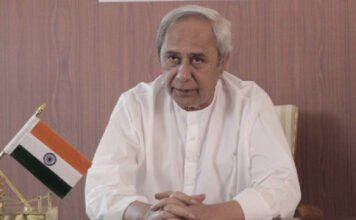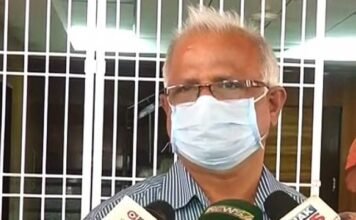Kolkata, July 7 (IANS) With stalemate continuing in Jadavpur University over its decision to scrap admission test for six under-graduate courses, its authorities on Saturday sought a directive from West Bengal Governor K.N. Tripathi – the ex-officio chancellor – on the emerging situation, even as students continued their hunger strike.
Virtually backing the agitating students, the Jadavpur University Teachers’ Association (JUTA) sought an appointment with Tripathi and endorsed the stand of a section of teachers to stay away from the entire admission process.
University Registrar Chiranjib Bhattacharjee said a report has been sent to Tripathi on the prevailing situation, in the aftermath of the university Executive Council’s decision to do away with the system of holding admission tests for six subjects in the humanities stream for the coming academic year.
“On Friday, our Vice Chancellor (Suranjan Das) and Pro Vice Chancellor (Pradip Ghosh) had called on the honourable Chancellor, who had asked for the report. Today (Saturday), we have sent it to him,” he said.
Bhattacharjee said the authorities were now awaiting an advice or directive from the Chancellor.
“The rule is once the Executive Council comes out with a resolution, then for carrying out any modifications in the resolution, if at all it is done, we need a directive or advisory from the Chancellor. Otherwise, there will be legal complications. We are now awaiting some advice or directive from him,” he said.
Meanwhile, 20 students were on hunger strike, outside the university’s administrative headquarters Aurobindo Bhawan since 11 p.m. on Friday.
The students on Saturday threatened to escalate their agitation if the EC meeting was not convened and they did not receive a positive response from the VC by Sunday noon.
“We have given him (VC) time till 12 noon. If no EC meeting is convened by tomorrow and we don’t get any response from him we will start an indefinite hunger strike,” said a protesting student.
Accusing the state government of “interfering with the autonomy of the institution time and again”, the student alleged that the university authorities were “patronising” such attitude.
On the other hand, a JUTA official said they have emailed Tripathi seeking an appointment to “discuss the entire matter with him”.
“In some of the departments, some teachers have announced they won’t be part of the admission process. We respect their sentiment, and endorse it,” the official said.
The university, rated one of the best in the country academically, plunged into turmoil after the authorities – apparently under pressure from the West Bengal government – decided to do away with the system of holding entrance tests for admission to six under-graduate courses.
In a reversal of a decision taken a week earlier, the university Executive Council in a July 4 resolution said for the coming academic year “under-graduate admission in arts should be conducted on the basis of marks obtained in the last board examination alone, without conducting any written admission test”.
On June 27, the EC had declared that admission tests would be held for six departments of the humanities stream – comparative literature, history, political science, philosophy, English and Bengali – and the merit list prepared by giving equal weightage to the test and marks obtained by the students in the previous board examination.
Earlier, the university witnessed an uproar following the decision to take the services of “external experts” in preparing one of the two sets of question papers for the admission tests, and the opinion of the Advocate General that the Board of Studies has no role to play in the admission process.
The latest EC decision came against the backdrop of state Education Minister Partha Chatterjee on more than one occasion speaking out against the JU holding admission tests for undergraduate courses in some subjects, while admitting students on the basis of plus two results in some other courses


























